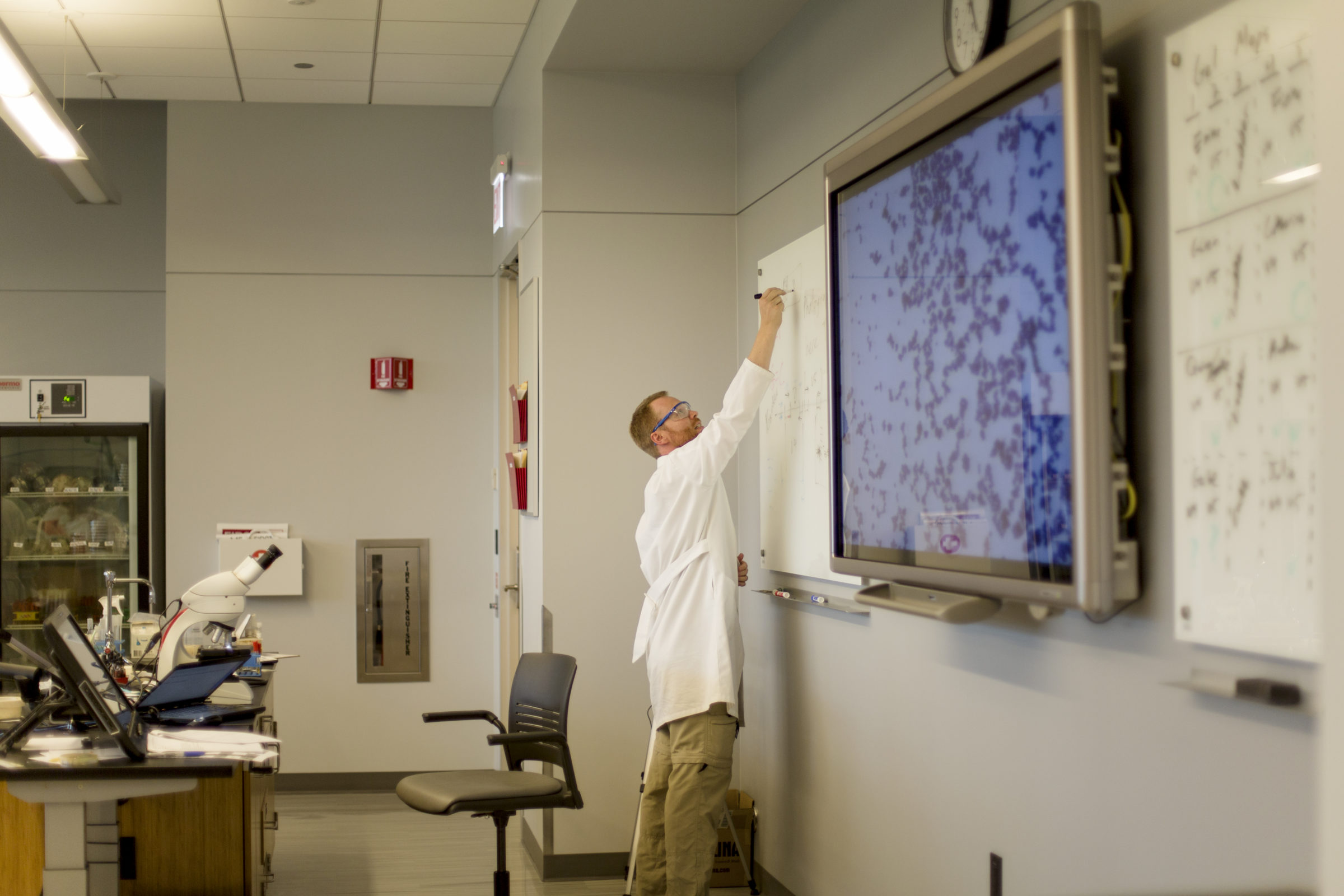Why Study Biomedical Sciences?
Students majoring in Biomedical Sciences participate in hands-on learning opportunities starting with their very first course. Access to the department’s cadaver lab and real-time technology elevates learning to a whole new level–preparing graduates for a range of scientific research careers, discovering important medical developments, and being part of positive change for improving the lives of others.
Accomplished and credentialed faculty teach students in our state-of-the-art lab how to plan, conduct, and evaluate experiments—all with an emphasis on safety. Supervised by faculty, students learn the importance of safety in the lab and how to comply with regulations.
Faculty Spotlight:
Dr. Matthew Schau
Professor of Biology
Professor Schau’s students receive hands-on lab experience presenting their research at the American Society for Microbiology National Conference, land undergraduate research positions in other labs, and gain acceptance into graduate programs.
Curriculum Highlights:
Students prepare for clinical or research-based careers in biomedical sciences through hands-on learning experiences working with:
- Human cadavers
- Animal and organ dissections Human cell culture
- Molecular analysis
- Nanoparticle characterization system
- Other modern instrumentation
State-of-the-Art Science Center
One of four majors supported by the Department of Biology, Biomedical Sciences’ classes are housed in our 101,000-square-foot, state-of-the-art, Nancy and G. Timothy Johnson Center for Science and Community Life.
Careers in Biomedical Sciences
Career paths range from clinical to quality assurance to research and development. Graduates often pursue fields as a:
- Medical Doctor
- Physician Assistant
- Physical Therapist
- Dentist
- Chiropractor
- Biomedical Researcher
- Biochemist
- Medical Scientist
- Lab Technician
Skills Acquired in Biomedical Sciences
Biotechnology, healthcare, food and drink, and the pharmaceutical industry actively recruit candidates who have proficiency in:
- Analytical problem-solving
- Statistics
- Data analysis, evaluation, and interpretation
- Project management
- Oral and written communication
- Collaboration
- Engaging key ethical questions


